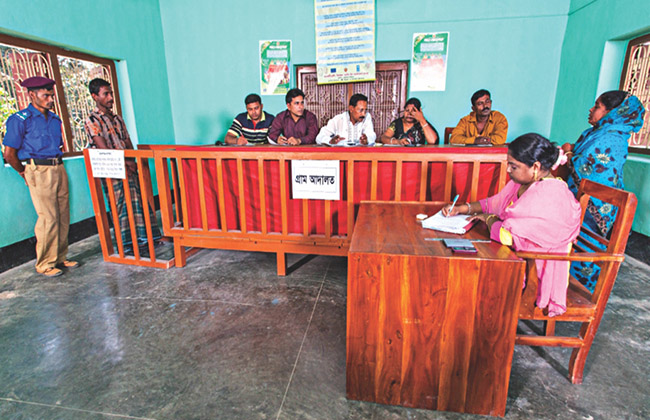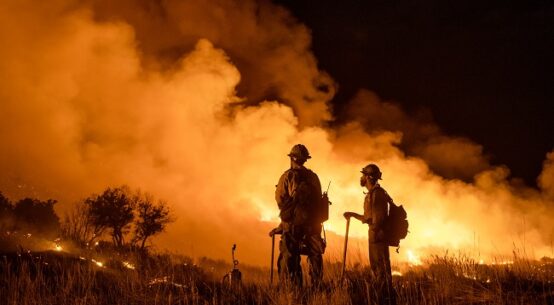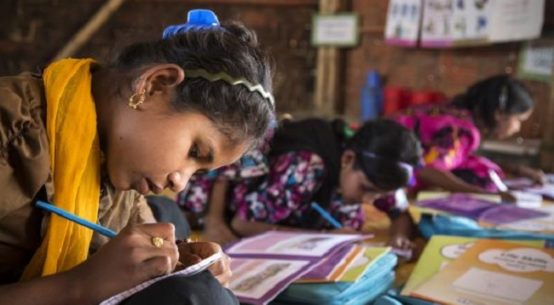
The government of Bangladesh has launched a new initiative known as Activating Village Courts Phase II with the goal of establishing a just and equitable judicial system in rural areas. However, the government of Bangladesh has already taken some urgent steps to implement the third phase across the country in order to provide equal justice that is more accessible, fair, and affordable for the poor, women, and other vulnerable groups. This is done in order to protect the rights of those who are currently being discriminated against in Bangladesh.
Before the establishment of village courts, it would take a superior court nearly 22 months to reach a decision on a case; now, the process takes only 22 days to be completed by village courts. People have no trouble at all receiving justice that is fair. According to the minister, the government is attempting to revise the Village Court Act of 2006 in order to make it more practical and user-friendly. This is one of the initiatives that are currently underway. The European Union and the United Nations Development Program helped with this issue. Local authorities in Bangladesh are assisting in the activation of village courts in 1,080 unions as part of Phase II of the Activating Village Courts Project. The government of Bangladesh, the United Nations Development Program (UNDP), and the European Union are all working together on this project. In phase II, 236,868 cases have been reported, of which 30 percent were by women. Almost 200,000 cases were resolved, benefiting 473,736 people.
The Cabinet has given in-principal approval to the draught of the Village Courts (Amendment) Act, 2022. The Local Government Department has implemented a project at a cost of TK 281 crore to implement village courts in the Union Parishads (UP) of the country. But after the completion of the project, the activities of the village court have slowed down. Under the scheme, records of village court cases were kept. Now the ministry does not have any updated information on the case.
The Gram (Village) Adalat (Court) Act was passed in the country in 2006. The Village Courts Act establishes a system in Union Parishads for the local resolution of small criminal and civil matters. This court has the authority to decide disputes up to a limit of 75 thousand takas. The village court can deal with things like theft, fights, lying, threats, insulting women’s modesty, not paying dues, and losing livestock.
The Gram (Village) Adalat (Court) was founded with the goal of relieving ordinary rural residents of legal obligations and facilitating easy access to legal representation. Additionally, the organisation was created to lessen the district courts’ accountability. However, nothing has really been done. Most of the unions do not have village courts. Most of the chairmen and members do not have even the minimum training to run the court. The court is composed of five members, including one chairman, two general members, and two members chosen by the complainant and defender. The court’s decision will be approved if it has unanimous approval or a majority of four votes. No one can call the verdict’s legality into doubt.
There are village courts in 4554 unions in the country, but village courts are not active and effective in all unions. In such a situation, the local government department took a project to strengthen the country’s village court system.
From July 2017 to May last year, 2 lakh 35 thousand 891 cases were filed in the village court of the project unions. Eighty-three percent of their cases have been settled. 191 crore 25 lakh takas have been collected through the village court.
The Village Court Provision extends to the chairman of the UP the final right to decide how the matter should be addressed, despite the fact that most of them lack any specific expertise in this field. In order to maintain the supremacy of the law, the Bangladeshi government is structured such that it is composed of three separate institutions, each of which functions autonomously from the others. A UP chairman or member’s sole responsibility is to ensure that the laws are carried out exactly as they are intended, but they also have a role in the administration of justice. How exactly does a body that is part of the executive branch become engaged in the judicial system? The question is, then, whether or not the rule of law is guaranteed. Also, the chairman of the UP and other members are becoming more biased as they move up in politics in order to make sure that everyone gets the same justice.
The Village Court continues to be in black and white. The general public is uninformed about this organisation since it provides no benefits to them. Members and chairmen are likewise unfamiliar with Village Court. This is a crucial scenario. The government has never done what was needed to bring attention to the problem. ” It is imperative that the rule of law be maintained; hence, the legislative and judicial branches ought to be kept distinct; there is no other viable alternative. Due to the many different legal obstacles that exist in village courts, village authorities are unable to settle any other issues. These hurdles prevent the resolution of even small conflicts. The majority of monetary cases have a limit of tens of thousands to hundreds of thousands of takas, and the government’s regulations do not empower them to handle cases with this limit. In some situations, they make an effort to solve the difficulties by using a method that is completely arbitrary. In these kinds of situations, the officials of the local government believe that the village courts have an immediate need for institutional and judicial change in order to become more functional. This is due to the fact that village courts are unable to ensure equal justice and properly fulfil their aims because there are some legal limitations as well. In fact, if this law isn’t changed and the things that have been mentioned above aren’t taken into account, the common people will be tortured even more and justice won’t be done well.
Shahariar Islam Sovon is a sub-editor of The New Nation newspaper


